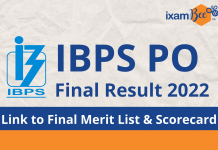Students preparing for the NABARD Grade A exam usually picture themselves working on credit planning, financial inclusion, rural infrastructure, or policy research. Those are central pieces of the organisation, of course, but there’s another field that often goes unnoticed, even though it’s growing steadily.
NABARD now needs people who can handle communication, create informative content, simplify policy for the public, and manage the institution’s presence across traditional and digital channels. In short, it needs media specialists.
If you’ve gone through the recent NABARD Grade A notification, you may already know that the organisation has been widening its recruitment. This also includes opportunities for candidates looking for diverse professional areas for roles as media specialists in NABARD.
The notification offers a vacancy for the role, and people skilled in media, public communication, writing, design, or digital outreach. Such people would definitely be curious about the role of media specialists in NABARD. Many students with a passion for creative work don’t realize that a development finance institution can offer the kind of work that blends public service with storytelling. Once you look closely, the mix is surprisingly rich.
Before diving into the roles, it helps to picture the daily atmosphere at NABARD. Offices are usually calm, though not quiet in the sleepy sense. There’s movement in the corridors, officers holding discussions on farm-sector initiatives, someone reviewing a project report from a state regional office, and team members checking updates from the Ministry of Agriculture.

In this setting, a media specialist in NABARD works like a translator of sorts, turning dense information into material that ordinary people can understand. That’s where the career starts to feel real.
Media Specialists in NABARD: Why it Matters
You don’t need to be convinced that rural development is complicated. It sits at the intersection of economics, climate concerns, financial literacy, and local governance. The public tends to hear only fragments of this work, and sometimes those fragments can be misleading. A well-run communication system helps prevent that. It ensures that the public, stakeholders, and even the bank’s own staff stay aligned.
That’s one reason media roles in NABARD Grade A have been slowly gaining structure. Whenever the organization launches a scheme for watershed development, climate-smart agriculture, farmer-producer organizations, or digital financial services, someone needs to prepare press briefs, explain the project to journalists, put out short digital posts, and document impact stories from the field.
Officers trained only in finance may not always have the time or the instinct for this work. Media professionals fill this gap. Another factor is the digital shift in government communication.
A generation ago, you’d see official ads only in newspapers or radio. Now the public expects regular updates on websites, social platforms, and online newsletters. NABARD, being a national-level institution, must maintain a consistent voice across these spaces. That’s where a media specialist in NABARD becomes indispensable.
Media Specialists in NABARD: Their Role
Most aspirants assume that only candidates with specialized media degrees can contribute here, but that isn’t always true. NABARD generally hires through the NABARD Grade A recruitment process, and once selected, officers may be posted in departments based on skills and organizational needs.
If you have a background in journalism, mass communication, public relations, design, film studies, literature, or content production, you’ll naturally stand out. But even students coming from other streams can find a place if they’ve developed strong communication abilities.
Let’s look at the areas where media specialists in NABARD work most often.
Corporate Communications Department
Think of this department as the central hub for official messaging. Officers here develop communication strategies, prepare public statements, coordinate with ministries, respond to media queries, and maintain alignment across regional offices.
A typical day might involve editing a press note in the morning, discussing an outreach plan for a new credit scheme after lunch, and reviewing social media material in the evening.
The work feels a bit like newsroom editing at times, except with more caution and a longer planning cycle. Media specialists who enjoy clarity of language and steady, structured tasks usually settle well.
Social Media and Digital Outreach
While NABARD’s social media tone is more measured than a consumer brand, it still demands creativity. Officers working in this space design digital campaigns for rural development awareness, financial literacy, and scheme rollouts.
When a state regional office sends photographs from a training workshop held in a village, someone must turn those images into meaningful stories. That’s where your editing sense and narrative instinct come in.
A small example: A few months back, NABARD ran a financial literacy drive in several districts. The raw field notes were factual but dry. A media officer picked out a short moment where a farmer spoke about learning to use UPI for the first time. This simple detail became the anchor for a digital post that received more engagement than usual. That’s the value of storytelling in rural communication.
Content Development and Documentation
This work involves writing reports, case studies, training material, and success stories from the field. It often requires travel to rural areas or speaking with regional office teams who have on-ground insights. If you enjoy field stories, this can be quite satisfying.
Many officers say this is the area where a media background makes the strongest impact. A well-crafted case study can shape policy decisions or attract public attention to long-term community projects. It’s not glamorous, but it carries weight.
The challenge here is accuracy. You’re expected to maintain clear grammar, a neutral tone, and a responsible sense of framing. Some students imagine this area to be slow-paced, but deadlines tend to be tight, especially when a policy report or annual publication is coming up.
Training and Capacity Building
NABARD runs a wide range of training programmes for bankers, government officials, NGOs, and farmers. Media specialists often help design training modules, visual material, or short explainer videos. These materials must be simple enough for first-time learners and detailed enough for professionals.
You might work with subject experts on agriculture, finance, or climate adaptation. They provide the technical content, and you shape it into something that learners can actually absorb. It’s a collaborative environment, and if you like teaching or instructional design, this area can be a strong fit.
Event Management and Public Outreach
NABARD regularly holds conferences, agriculture expos, project launches, and award ceremonies. Someone needs to plan communication for these events. That includes preparing the concept note, coordinating with media houses, briefing photographers, writing the event script, and managing the flow of public information.
This role suits people who enjoy movement and interaction. It tends to be lively, with a bit of unpredictability. You’ll sometimes find yourself adjusting the event write-up because a chief guest arrived late or a session ran longer than expected. It keeps you alert, and the final output feels tangible.
Building a Media Career through NABARD Grade A
If you’re preparing for the NABARD Grade A exam, you may wonder how realistic it is to land in a media-oriented department. The truth is, it isn’t guaranteed, but it is possible. Grade A officers are generalists in many ways, yet departments take note of your strengths. During training, you’ll be asked about your academic background, previous work, and interest areas. Officers with communication skills often get opportunities to work on publications or smaller communication tasks even before formal placement.
A strategy some aspirants follow is to develop a portfolio before joining. This doesn’t have to be fancy. Articles, short videos, graphic explainers, or research summaries are enough to show that you understand storytelling. Once inside the organization, such samples help your reporting officers place you in relevant communication roles.
Students sometimes think media work in development institutions is slow or outdated, but that picture isn’t accurate. With the rise of digital outreach and the need for clear public communication, these roles have become more meaningful. You’re contributing to national-level rural development while still using creativity and communication as your core tools. It’s a rare combination.
Career Growth and Long-Term Prospects
A media specialist in NABARD can grow through vertical promotions like any other officer, but the nature of responsibilities expands over time. After a few years, you may handle national-level campaigns, coordinate with ministries, or lead strategic communication initiatives. If you lean towards policy, you might end up shaping guidelines on public outreach for rural development projects. If you enjoy writing, you might become the go-to person for flagship reports.
Many officers eventually take up leadership roles in communication wings of government departments, regulatory bodies, or international development agencies. A handful move into research organisations or think tanks working on agriculture and rural policy. A media role in NABARD becomes a strong foundation because you’ve spent time understanding both the field and the communication machinery behind it.
Media Specialists in NABARD: Relevence for Students from a Media Background?
If you’re coming from journalism or mass communication, you might worry that a development finance institution will restrict your creative freedom. While the tone is more formal and measured compared to a newsroom or advertising agency, the intellectual space is wide. You tell stories grounded in real communities and real challenges. Instead of promoting a commercial brand, you help people understand public programmes that can change livelihoods.
The work isn’t always glamorous. Some days involve editing long documents or coordinating small updates. But if you enjoy patient storytelling and want your writing to have a sense of purpose, this career path offers that blend.
Summing Up
Media specialists in NABARD and their roles are still evolving, but they’re essential. Students preparing for NABARD Grade A 2025 often focus only on economic and agricultural roles, not realising that strong communication is vital for any large institution. The organisation needs people who can give shape to its ideas and make its work accessible to millions.
If you see yourself as someone who thrives on writing, visual storytelling, or public communication, don’t hesitate to consider this path. As the country pushes deeper into digital governance and development finance, the need for clear, responsible, and creative communication will only grow. NABARD gives you the chance to be part of that growth while contributing to rural India in a meaningful way.
At ixamBee, we specialize in providing comprehensive online courses for government exams and online courses for government jobs. Our expertly designed courses for government jobs cater to a wide range of upcoming government exams. Whether you’re preparing for specific courses for government exams or seeking general guidance, ixamBee offers resources like Beepedia previous year papers, SSC CGL, SSC CHSL, SSC MTS, and other mock tests to succeed in exams like RBI Grade B, SEBI Grade A, NABARD Grade A, RRB NTPC, SSC MTS, NIACL Assistant, and more.
Also Read
NABARD Grade A Recruitment 2025: Syllabus, Eligibility, Salary & More
Cracking NABARD Grade A Exam: Tips and Preparation Strategies
What To Do While Preparing for NABARD Grade A Phase 2 Exam












